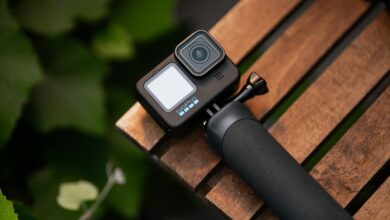Hybrid AI is the way forward to make artificial intelligence more practical on smartphones: Samsung’s Won-Joon Choi

Artificial intelligence (AI) in smartphones raises many questions across many industries that current generative AI tools will not be able to answer. Of course, there are discussions around personal data privacy but more importantly, how should mobile phone manufacturers approach AI while integrating services like ChatGPT on mobile phones? The reliability, speed and practicality of generative AI tools on smartphones depends heavily on the hardware power.
While on device AI seems idealIt may not be economically feasible for all smartphone brands to provide useful AI tools in mobile phones at all price points, especially in the low-end and mid-range categories. At the same time, not everyone is willing to increase their smartphone purchase budget every year to get a powerful flagship smartphone. Now, the dilemma is how to provide useful AI services at affordable prices. smartphone– a segment that makes up the largest group of mobile device buyers in countries like India?
Bringing AI to smartphones at every price point
Samsung has a clear answer – “Hybrid AI”. Not just for Galaxy S flagships or foldable phones Galaxy Z series of products, Samsung is also considering bringing AI Galaxy services for devices in the Galaxy A series of budget smartphones. To provide a seamless experience – some AI processing takes place locally on the user’s device while certain complex functions require the user’s smartphone to be connected to the internet to take place in the cloud. For Samsung, forming a clear “case-by-case” policy on what happens on the device and what data is processed in the cloud is a top priority.
“Our users are now experiencing the tangible benefits of AI Galaxy“Galaxy AI is evolving to deliver a truly human-centric mobile AI experience – and that’s just the beginning. In just a few months, we’ve democratized Galaxy AI, expanding access to more models and form factors. This is a feat that was only possible through close collaboration with industry partners and our unique approach to hybrid AI to provide users with the most practical, reliable, and versatile mobile AI experience possible. An experience that has the potential to change lives,” said Won-Joon Choi, Executive Vice President and Head of Mobile R&D, Mobile Experience Business, Samsung Electronics, at a recent post-event brainstorming session. Galaxy Unpacked 2024 event in Paris.
Won-joon Choi is the leader. of Samsung a leading R&D team in the Mobile Communications division and helped the company become the world’s first device maker to commercialize a 5G-enabled smartphone in 2019.
At the AI session, Jenny Blackburn, VP of User Experience at Gemini Experience & Google Assistant, said, “Creating something that works for people using different devices in different situations is something that Google and Samsung have been exploring together since the inception of the Android platform. It’s no different when it comes to Gemini and Galaxy AI. It’s all about focusing on how people use their devices.”
Also read
How can users trust hybrid AI models?
Google provides the Android operating system, hardware comes from partners such as Qualcomm and then Samsung talks about hybrid AI, where users’ personal data could be processed on servers over which they would have little control. The next big question is how can this be trusted when there are so many “players” involved in a hybrid setup.
“We need regulations that can adapt as AI evolves. Continuous research and monitoring, such as that provided by the OECD.AI Policy Observatory, will ensure informed decisions and help policymakers stay abreast of developments. We work directly with leaders in government and major technology companies. Samsung is well-positioned to actively participate in discussions on best AI practices that promote human-centered, safe, secure and trustworthy AI,” said Lucia Russo, Economist and Policy Analyst at the Artificial Intelligence (AI) Unit, Digital Economy Policy Division, OECD.
While this statement may not be enough to explain the trustworthiness of hybrid AI, it is interesting that tech companies are willing to accept that AI policies need to be constantly reviewed and monitored.
“It is our responsibility as leaders in mobile AI to work closely with industry leaders and regulators to build AI that positively impacts society. At Samsung, we understand our users. What they want and how they behave. It is these insights that have enabled us to create truly human-centric mobile AI while protecting user privacy. This is our top concern now because in this hyper-connected age, privacy is more important than ever,” said Daehyun Kim, Executive Vice President of Samsung Research Global AI Center, Samsung Electronics.
While Samsung sells smartphones across all price segments and questions around privacy from its reliance on hybrid AI may come to the fore, other brands like Apple and Google Pixel, despite only launching premium smartphones, have taken a similar approach. For example, Apple’s option ChatGPT features for AI-generated content along with features like NightSight Video on Pixels Flagship phones also rely on hybrid AI and third-party partnerships.



